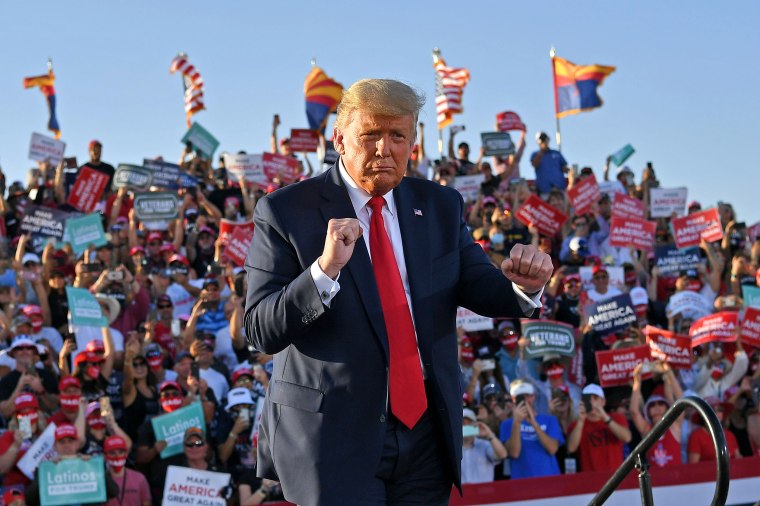Months ahead of the midterm elections in 2018, Donald Trump hosted a roundtable discussion in West Virginia, where the president was supposed to talk about the economy and the Republican tax cuts. White House aides had even prepared a two-page script for their boss to follow.
But he couldn't be bothered. "You know, this was going to be my remarks, it would've have taken about two minutes, but to hell with it," the president said, literally throwing the pages in the air. He added that talking about the economy and tax policy "would have been a little boring."
Trump instead complained incessantly about immigration. And talked about his 2016 election victory. And made up baseless claims about rapists. And pretended "millions" of people voted illegally during the 2016 elections.
All of this came to mind yesterday when the president made campaign appearances in which he deliberately downplayed the importance of the latest report on economic growth. As the New York Times noted, the Republican incumbent, campaigning in Tampa, spent some time referencing the economy, but the subject didn't keep his interest.
He quickly moved on, mocking Republicans who have repeatedly advised him to focus on his economic record instead of lashing out at enemies and harping on the issue of Hunter Biden's business dealings.
"I get a call from all the experts, right, guys that ran for president six, seven, eight times, never got past the first round, but they're calling me up. 'Sir, you shouldn't be speaking about Hunter,'" Trump said. "'You shouldn't be saying bad things about Biden because nobody cares.' I disagree. You know, maybe that's why I'm here and they're not."
The president added, "They say, 'Talk about your economic success. Talk about 33.1 percent, the greatest in history.' Now, look, if I do, I mean, how many times can I say it? I'll say five or six times during this speech, 33.1%. But you look at that and you look at Tucker Carlson, what he did the other night, right?"
After mentioning Fox News coverage he liked, a related thought apparently popped into his mind: "Hey, how about Anonymous?"
And with that, he was off, talking extemporaneously and at some length about Miles Taylor and his pseudonymous work.
This was not how yesterday was supposed to go. Many, including me, expected Trump to cling to the GDP report released yesterday morning as a political life-preserver, leading to a lengthy discussion from Democrats, economists, journalists, and people who understand economic data who'd try to explain to the public that the president's boasts about the GDP were misleading.
But on stage, the Republican effectively echoed the "would have been a little boring" rhetoric from two years ago, explaining that he preferred to ignore the advice of his allies about what moves voters.
Because for Trump, economic growth isn't exhilarating. It's not motivating. He sees numbers on a page, then sees images of Hunter Biden in conservative media, and is immediately animated by the latter over the former.
It's best not to overstate this, of course. What the president says on the campaign stump differs from his political operation's television advertising, and while Trump doesn't want to focus too much on rhetoric related to the economy at his rallies, voters who see his commercials are getting a different message.
But yesterday nevertheless offered a peek into the president's priorities. It also helps explain why Trump was so passive during economic-aid talks, which culminated in failure: the subject just isn't as exciting to him as what he saw on Fox News.
